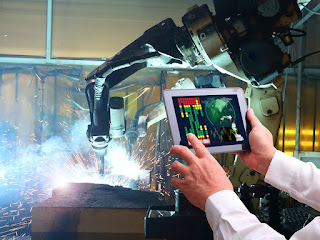Technology drives inequality. So automation has widened gaps between the haves and have-nots, latest research shows.
In the US economists point to the postwar years, from 1950 to 1980, as a golden age when technology forged ahead and workers enjoyed rising incomes. But many workers started falling behind.
There was a steady advance of crucial automating technologies - robots and computerized machines on factory floors, and specialized software in offices.
To stay ahead, workers required new skills. Yet the technology shift evolved as a growth on postsecondary education and companies began spending less on training their workers.
Economist Dr. Daron Acemoglu, M.I.T. and Dr. Pascual Restrepo have published papers on the impact of robots and adoption of ''so-so technologies,'' as well as the recent analysis of technology and inequality.
So-so technologies replace workers but do not yield big gains in productivity. As examples, Mr. Acemoglu cites self-checkout kiosks in grocery stores and automated customer service over the phone.
Today, he sees too much investment in such so-so technologies, which helps explain the sluggish productivity growth in the US and in the world economy.
By contrast, truly significant technologies create new jobs elsewhere, lifting employment and wages.
The rise of the auto industry, for example generated jobs in car dealerships, advertising and accounting and financial services.
Market forces have produced technologies that help people do their work rather than replace them. In computing, examples include databases, spreadsheets, search engines and digital assistants. But Mr. Acemoglu insists that a hands-off, free-market approach is a recipe for greater inequality, with all its attendant social ills.
One important policy step he recommends, would be fair tax treatment for human labor. The tax rate on labor, including payroll and federal income tax, is 25 percent. After a series of tax breaks, the current rate on the costs of equipment and software is near zero.
Well designed education and training programs for the jobs of the future, Dr. Acemoglu said, are essential. But he also believes that technology development should be steered in a more ''human-friendly direction.''
He takes inspiration from the development of renewable energy over the last two decades, which has been helped by government research, production and subsidies and social pressure on corporations to reduce carbon emissions.
'' We need to redirect technology so it works for people,'' Mr. Acemoglu said, ''not against them.''
'' When technology, education and training move together, you get shared prosperity,'' said Lawrence Katz, a labor economist at Harvard University.
'' Otherwise, you don't.''
Increasing international trade tended to adopt automation strategies. For example, companies worried by low-cost competition from Japan and later China invested in machines to replace workers.
Today, the next wave of technology is artificial intelligence. And Mr. Acemoglu and others say it can be used mainly to assist workers, making them more productive, or to supplant them.
Mr. Acemoglu, like some other economists, has altered his view of technology over time. In economic theory, technology is an almost magic ingredient that both increases the size of the economic pie and makes nations richer.
He recalled working on a text book more than a decade ago that included the standard theory. Shortly after, while doing further research, he had second thoughts.
''It's too restrictive a way of thinking,'' Mr. Acemoglu said. ''I should have been more open-minded.''
Mr. Acemoglu is no enemy of technology. Its innovations, he notes, are needed to address society's biggest challenges, like climate change, and to deliver economic growth and improved living standards.
But as Mr. Acemoglu dug deeply into economic and demographic data, the displacement effects of technology became more apparent.
''They were greater than I assumed,'' he said. ''It's made me less optimistic about the future.''
The World Students Society thanks author Steve Lohr.

.png)


0 comments:
Post a Comment
Grace A Comment!